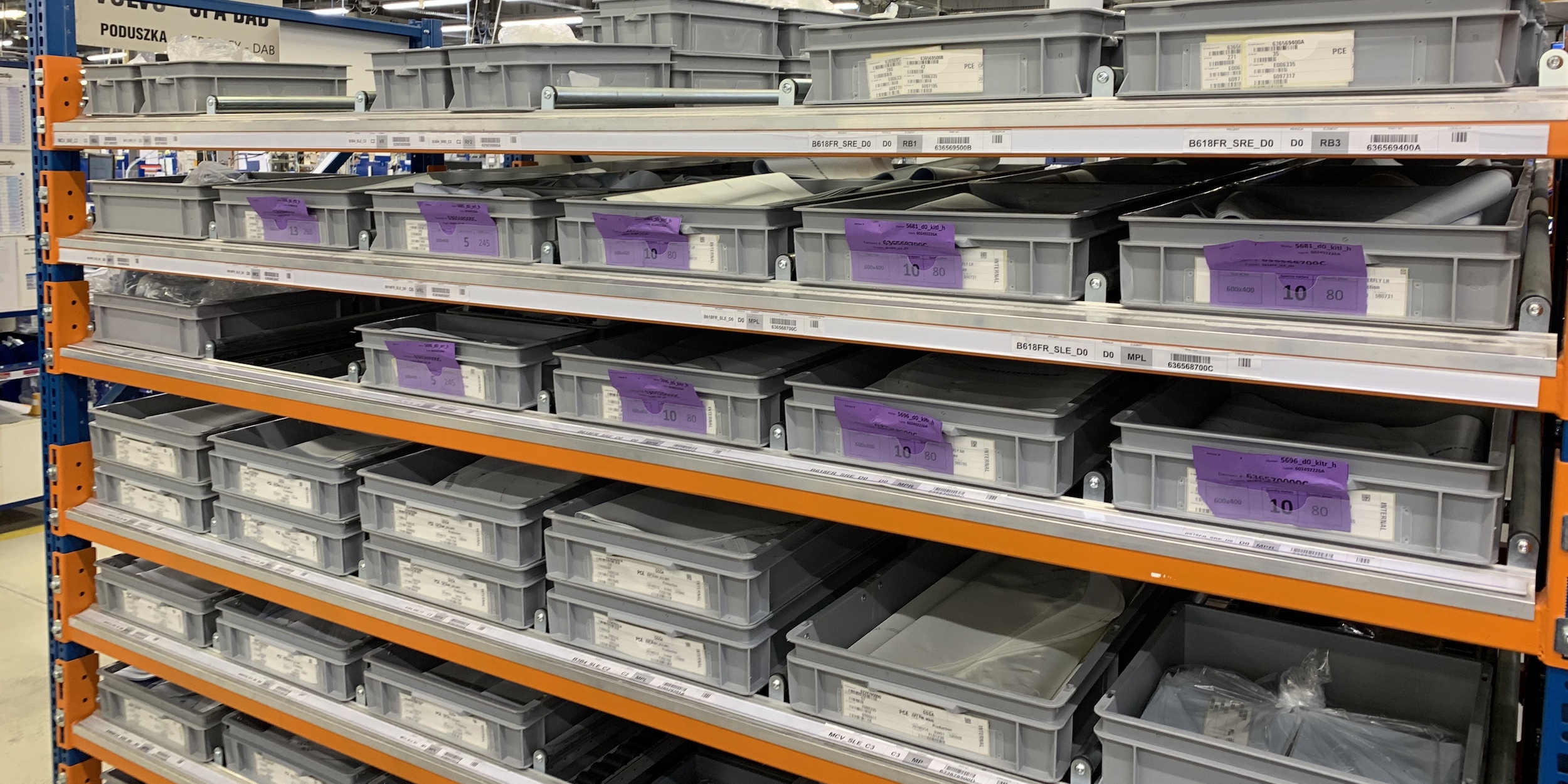
Cooking up lean change
PROFILE – In an industry dominated by star chefs and big egos, meeting a humble leader who has made people development his battle cry is a breath of fresh air. PL interviews Legal Sea Food’s Richard Vellante.
Profile on: Richard Vellante, Executive Chef and Executive VP, Legal Sea Foods – Boston, USA
Words: Roberto Priolo, Editor, Planet Lean
On his junior year of college, Richard Vellante spent a semester in Rome, Italy. He was taken by the culture of the country and he was fascinated by the fact that everything seemed to revolve around food there. Back then he didn’t know, but those weeks in Italy changed everything for him.
When he got back to the United States, he worked in the marketing department of Pepsi for a year. However, it quickly became clear to him that his real passion was food. So, he decided to move to New York and go to culinary school.
While in the Big Apple, Rich worked two jobs to put himself through school at the French Culinary Institute. He has worked in the restaurant industry ever since. It’s been 32 years.
The two years he spent working in New York gave him a taste of what restaurant business is like. “The culture is aggressive, and people are fiercely competitive,” Rich told me recently. “It’s cut-throat. You are on your own. You take days off, you are out. And there is so much yelling! I must say, however, that having been an athlete all my life, I didn’t necessarily mind the ‘physicality’ of it.” He quickly went on to explain that he is a very calm, shy person, and that what he truly enjoyed about the restaurant environment in New York was the camaraderie and the competitive battle that went on every day. “That’s what drew me to it in the first place,” he said.
After his time in New York, Rich returned to Boston and worked in a couple of Italian restaurants. He then got the opportunity to stage for a year in Italy, where he cooked his way around the regions of Piedmont, Lombardy and Tuscany. His love for the country kept growing (as his surname suggests, Rich has Italian origins and he is now the proud holder of an Italian passport), and there is no doubt Italian cuisine greatly inspired his career.
Twenty-two years ago, Rich ended up at Legal Sea Foods, a group of 36 restaurants on the East Coast of the US. Today, he is an Executive Chef and Senior Vice President there.
BRINGING LEAN TO RESTAURANTS
I meet Rich at a Legal Sea Foods restaurant in Burlington, just outside Boston. The place is buzzing with activity, as the team – supported by Lean Enterprise Institute coaches – prepares to run a pretty difficult experiment that completely changes the way the kitchen is run. (PL recently published an article on this.) During the experiment, Rich observes intently as the team enthusiastically tries a different approach to cooking food. He takes notes and measures times, and then he observes some more. I can’t think of a better example of “go see”.
“The great thing about this company is that it constantly evolves,” Rich tells me at the end of the day, as we sit at one of the tables in the Burlington restaurant. “Legal is unique, in that it is really three companies in one. We have our own fish-processing plant, a retail side of the business, as well as the 36 restaurants.”
Around four years ago, Legal Sea Foods decided to bring lean to the fish-processing plant and, from there, to the restaurants. People just seemed to gravitate towards it. “They had the courage to try,” Rich says. In the process, the Legal team realized that to change the operating system they first had to change the way people think. Rich continues: “There are a lot of bravado and big egos in the restaurant world. We react to things and, when there is a problem, we fix it and then go back to the old way. By embracing lean thinking, we can learn better ways of addressing problems.”
Restaurants are still largely chef-centered, which at times can be a hindrance to team development. Additionally, in such environments, hours are long, margins are tight and customers are increasingly demanding. Under these high-pressure circumstances, there is typically very little time to stop and think about better ways of working. “The inability to think slow and reflect enough prevents people from coming up with solutions. Combine that with scarce resources and it is hard for restaurants to break out of this vicious cycle,” Rich explains to me.
Lean, however, can help restaurants to transform themselves: by eliminating problems and increasing value, it can help people in the industry focus on what they love to do: cooking great food and offering great hospitality.
As Rich and I talk, I can’t help but think of how intently he was observing the work just a couple of hours earlier. This reflective approach, to me, is a sign of a good lean leader. Indeed, as we discuss the tendency of people to want quick solutions, Rich explains how lean teaches you to understand the problem to solve first (as well as your true purpose) before you make any decisions.
“Lean gives you a mirror into the future: you can see where things should be going, what conversations should take place, what questions should be asked, how we should react to things, and so on. Thanks to it, I think Legal is more equipped to deal with today’s challenges than it ever was,” he says.
EVOLVING LEADERSHIP
As he got older, the ego-driven nature of the restaurant business began to feel a bit archaic to Rich, who started to think about possible better ways of doing things. His own mindset began to shift.
“A lot of us feel like the leader is the loudest one in the room or the person with all the answers,” he explains. “It is not necessarily the case! Lean showed me that you don’t have to be the most talented. Instead, it taught me about teamwork and asking good questions. I think that what really matters to your leadership is your ability to leverage each person’s strengths and develop their capabilities.”
Indeed, Rich appears to have a very clear idea of what being a lean leader means. To avoid getting distracted (which is all too easy in a high-intensity environment like a restaurant), Rich distills his own growth as a leader into four areas: being a good planner, solving problems, learning how to execute, and developing people.
These insightful comments lead me to ask Rich whether he thinks anyone can be a lean leader. “I think there are some innate traits, but you also have to develop yourself. You need to be open to learning and listening, be humble and always try to find better ways of doing something. I guess it comes down to being curious!” he says.
He goes on to tell me how often he sees people shut down out of fear at the first whiff of change, and how it is a responsibility of leadership to show vulnerability, help people to think, and demonstrate that it is okay to say, “I don’t know”.
Supporting people in their development is a real commitment for Rich, whose eyes light up when he talks about the personal and professional transformation many of his colleagues are experiencing. (During our conversation, they had only lit up like that when he was talking about Italian food.)
He tells me: “Watching people grow excites me. I have always loved sports and I guess I am a coach by nature. It makes me happy to witness the development of our people – when someone gets a promotion, starts a family, or buys a house. Take my colleague Jason Berkman: until recently he was a chef here at the Burlington restaurant, whereas now, as Director of Operations, he is influencing both the front and the back. It makes me proud to see how lean has widened his scope. Helping individuals like Jason embrace lean is how we are going to transform Legal!”

Read more


FEATURE – Variety in sensei approaches can cause a lot of confusion. The author sheds light on the subject by describing a sensei’s five modes of interacting with individuals and teams.


FEATURE – Back on the road after two years, the author reflects on how lean organizations have performed during the pandemic and addresses age-old misunderstandings about Just-in-Time.


THE NAKED GEMBA – Our new series goes back to basics to unlock the secrets of the gemba and tell us about some of the main tools and techniques we can use in a lean transformation. First up, supermarkets.


INTERVIEW - Like many other improvement methodologies, LeanUX shares a lot of principles with traditional lean. Yet, the two communities don’t know a lot about each other. We ask an expert to bridge the gap.

